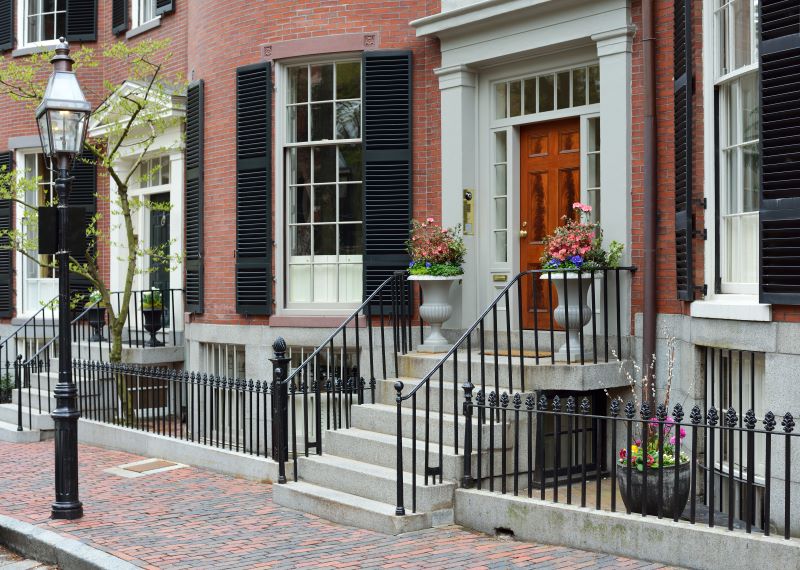
***UPDATED*** This market report has been updated, check out our 2023 Boston Real Estate Sales Market Report!
As we enter the final quarter of 2022, it appears like the decade-long period of growth for Boston’s real estate market is grinding to a halt. The most recent MLS data shows that rising interest rates have effectively suffocated demand for Boston real estate in Q3. Total 30 day sales from September are down -37.24% compared to a year ago. Meanwhile, the total number of sales listings are up 25.10% over the same period.
As a result, Boston’s 30-day median sale price has been slipping from the record high of $876,091 set in May of this year. Last month’s 30-day median sale price of $807,303 is still up by a slim margin (+3.64%) compared to September 2021, but current data trends show that year-over-year price growth will soon be in the red in Boston. Let’s take a look at the trends driving Boston’s real estate market.
Demand For Boston Real Estate Waning
In September, the City of Boston recorded 455 residential real estate transactions across all property types. That marked a -37.24% drop in total sales from September 2021 and was the lowest recorded September sales total of the past 5 years.
| Month | 30 Day Sales | 30 Day Sales YOY Change |
| Sep 2022 | 455 | -37.24% |
| Aug 2022 | 476 | -38.26% |
| Jul 2022 | 613 | -24.23% |
| Jun 2022 | 791 | -6.50% |
| May 2022 | 705 | -12.42% |
| Apr 2022 | 611 | -4.53% |
| Mar 2022 | 468 | -11.03% |
| Feb 2022 | 374 | -2.35% |
| Jan 2022 | 441 | -6.17% |
Total monthly property sales in Boston have remained below 2021 levels throughout 2022, but that margin increased significantly over the past quarter. This rapid decline in demand coincided with three major rate hikes of 75 basis points announced by the Fed in June, July, and in September of this year. As a result, prices have been trending downward during the same time span.
Median Sales Prices Trending Downwards in Boston
Boston’s 30 day median sales price for all residential property types in September was $807,303. While that is still slightly higher (+3.64%) compared to September 2021, it has decreased by -7.86% since the median sale price hit an all-time high of $876,091 in April of this year.
| Month | 30 Day Median Sale Price | 30 Day Median Sale Price YOY Change |
| Sep 2022 | $807,303 | 3.64% |
| Aug 2022 | $800,433 | 6.79% |
| Jul 2022 | $837,428 | 14.38% |
| Jun 2022 | $810,495 | 5.68% |
| May 2022 | $823,695 | 7.96% |
| Apr 2022 | $876,091 | 19.94% |
| Mar 2022 | $773,923 | 5.96% |
| Feb 2022 | $769,647 | 11.73% |
| Jan 2022 | $758,246 | 8.36% |
The Fed will meet again in early November to discuss inflation, and most agree that they will raise interest rates for a sixth time this year. That will further diminish property demand in Boston, causing median prices to continue to slide downward. Look for year-over-year median prices to be in the red by the end of 2022.
Uncertain Times Ahead For Boston’s Real Estate Market
The outlook for Boston’s real estate market looks less than optimistic as we head towards 2023. The combination of rising interest rates and recession will continue to shrink demand for real estate in Boston through the next 6 months at the very least. As a result, short-term projections all point towards median price reductions. Rising energy prices based on an incoherent national oil and gas production policy are spurring inflation in nearly all aspects of the economy. It appears unlikely that inflation will get under control until greater levels of production and refinement of fuels is accelerated domestically.
Because real estate development and major renovations of properties are heavily energy dependent; we could see a dramatic slow down in the ability to deliver new product to the marketplace. Demand destruction, in a sad but round about way, can actually keep prices from sliding further as new developments grind to a halt. Long term, demand destruction based on high energy costs is going to hurt consumer choices on more real estate options. To properly build new construction it takes big equipment with immense amounts of horsepower and that means energy. If we want the cost per square foot of construction to come down in price – we are going to need to work on increasing supply of readily available and affordable fuel supplies.
The long-term outlook for Boston’s real estate market is less clear. Boston’s growing tech and biotech sectors have continued to fuel housing demand as the city adds more high-paying white-collar jobs. So while the US economy is certainly entering into a recession, the effects on Boston’s local economy may not be as severe. There maybe enough highly paid consumers that are willing to absorb the high cost of construction due to the lower labor participation rate and runaway inflation. If Boston can avoid the widespread corporate layoffs and business closures that are typical during recessions, real estate prices will likely decline by a smaller percentage than they do nationwide. We will continue to report on these trends as they develop.
Demetrios Salpoglou
Published November 1, 2022
Demetrios has pulled together the largest apartment leasing team in the Greater Boston Area and is responsible for procuring more apartment rentals than anyone in New England – with over 130k people finding their housing through his services. Demetrios is an avid real estate developer, peak performance trainer, educator, guest lecturer and motivational speaker.






